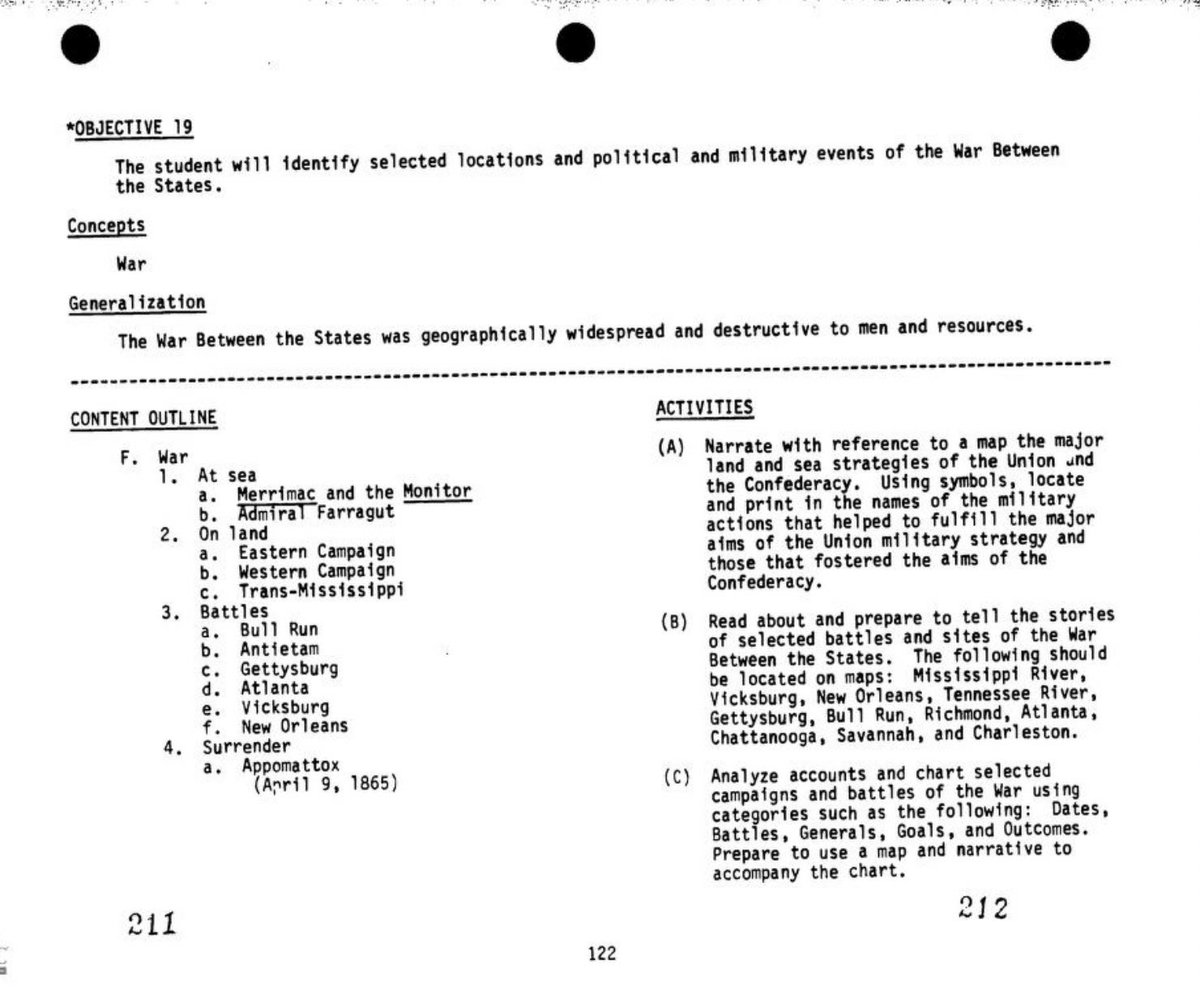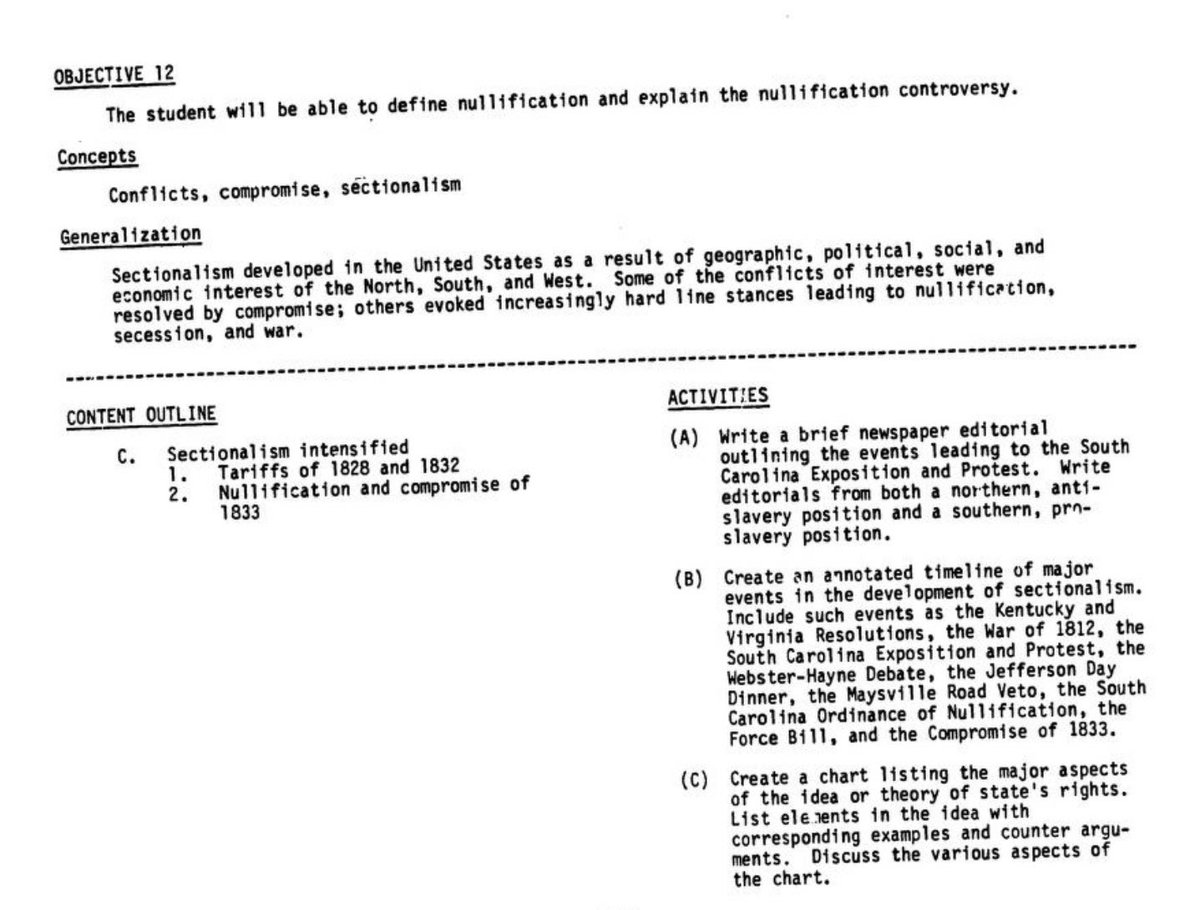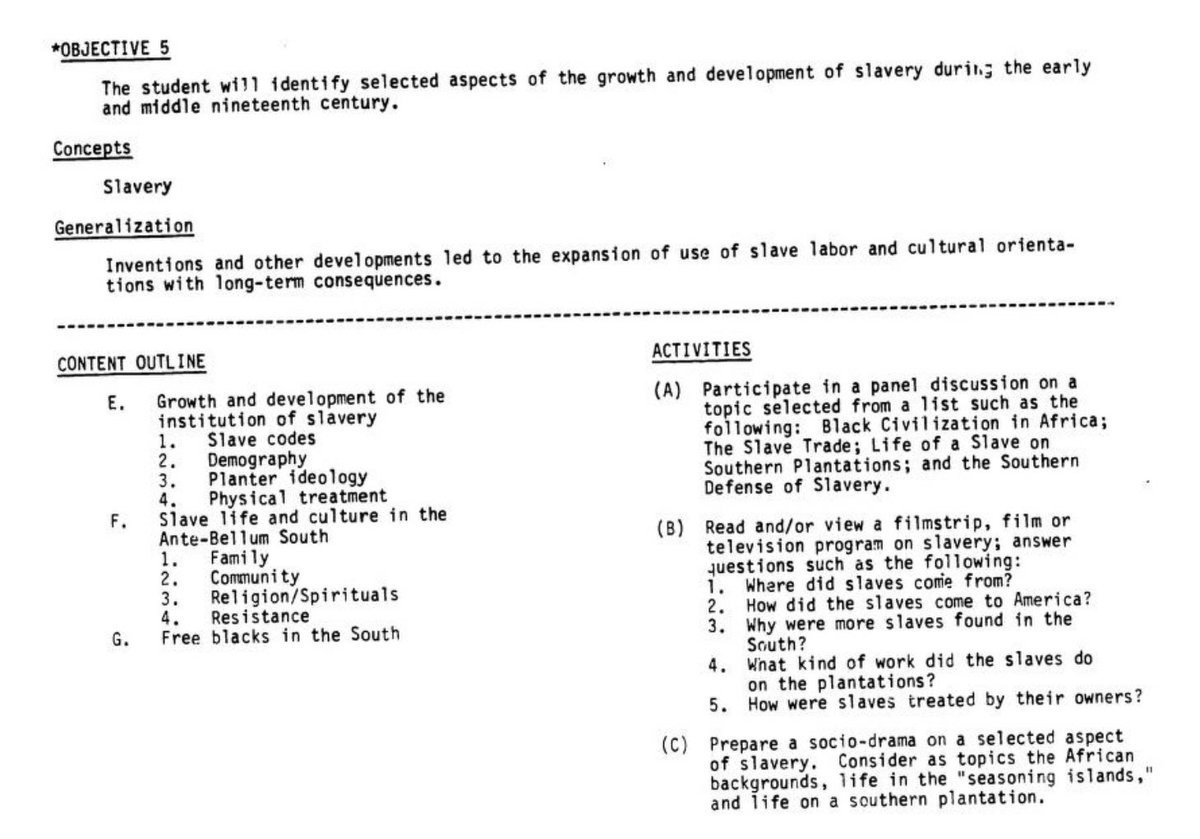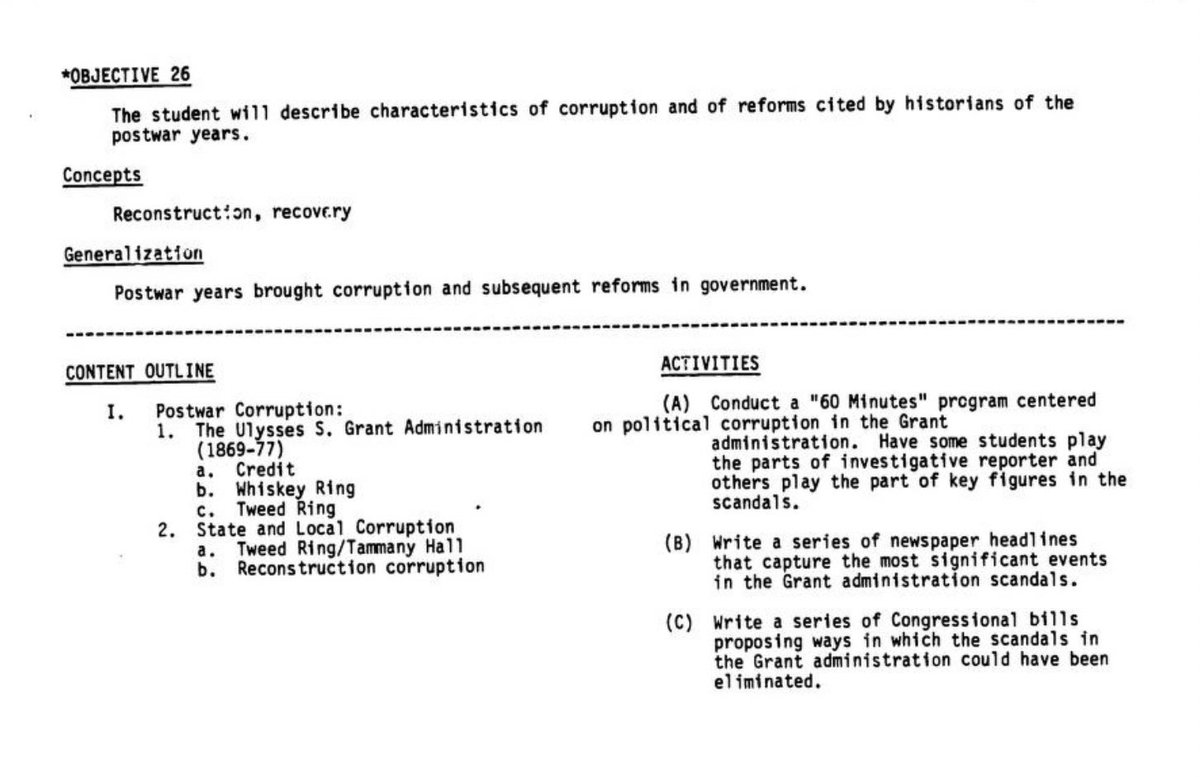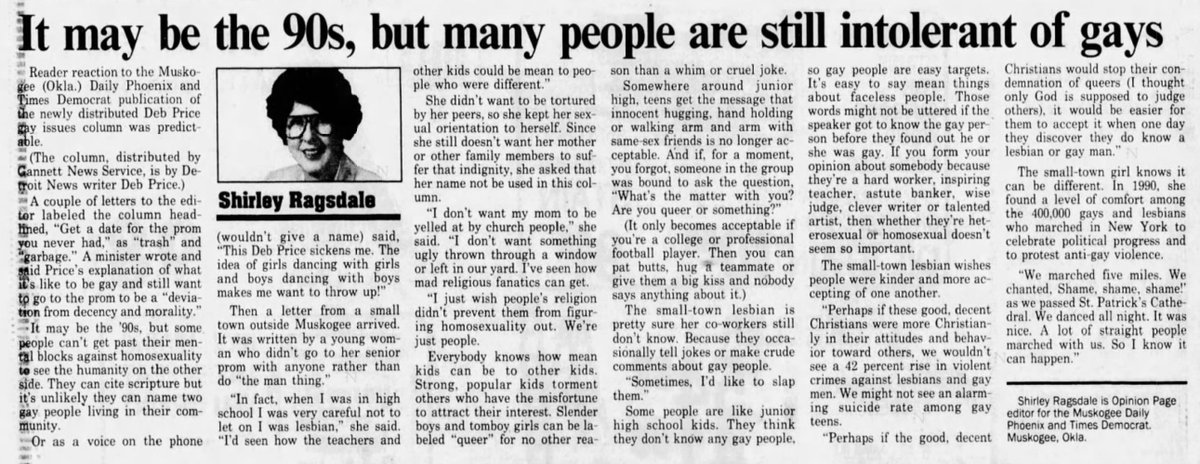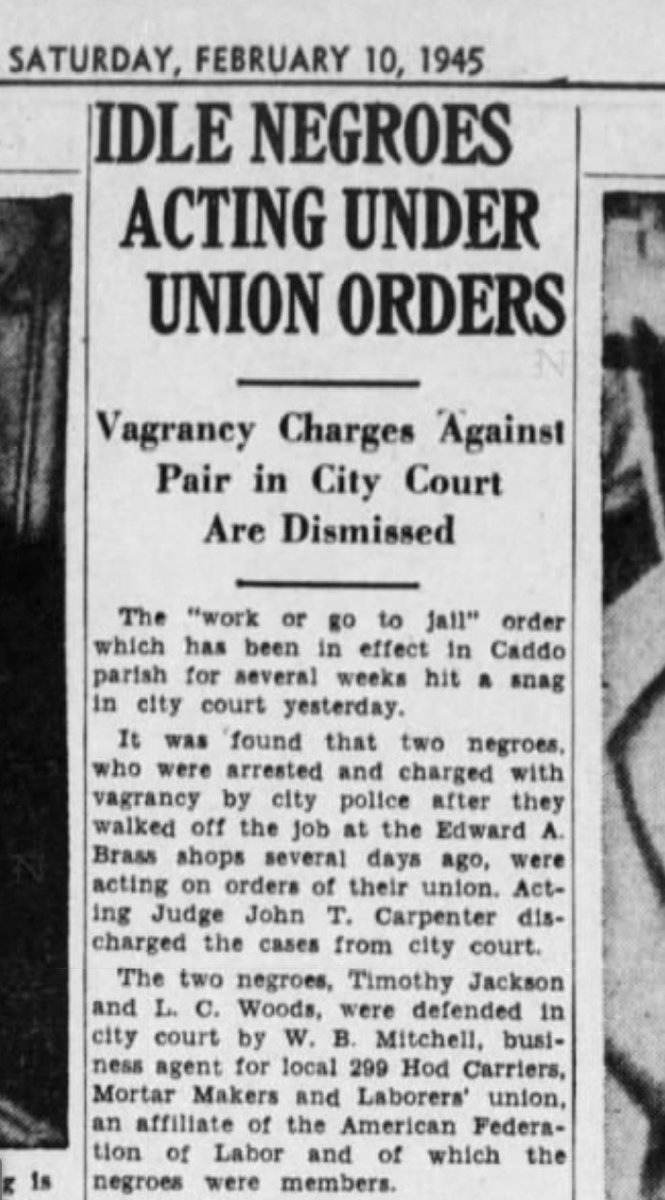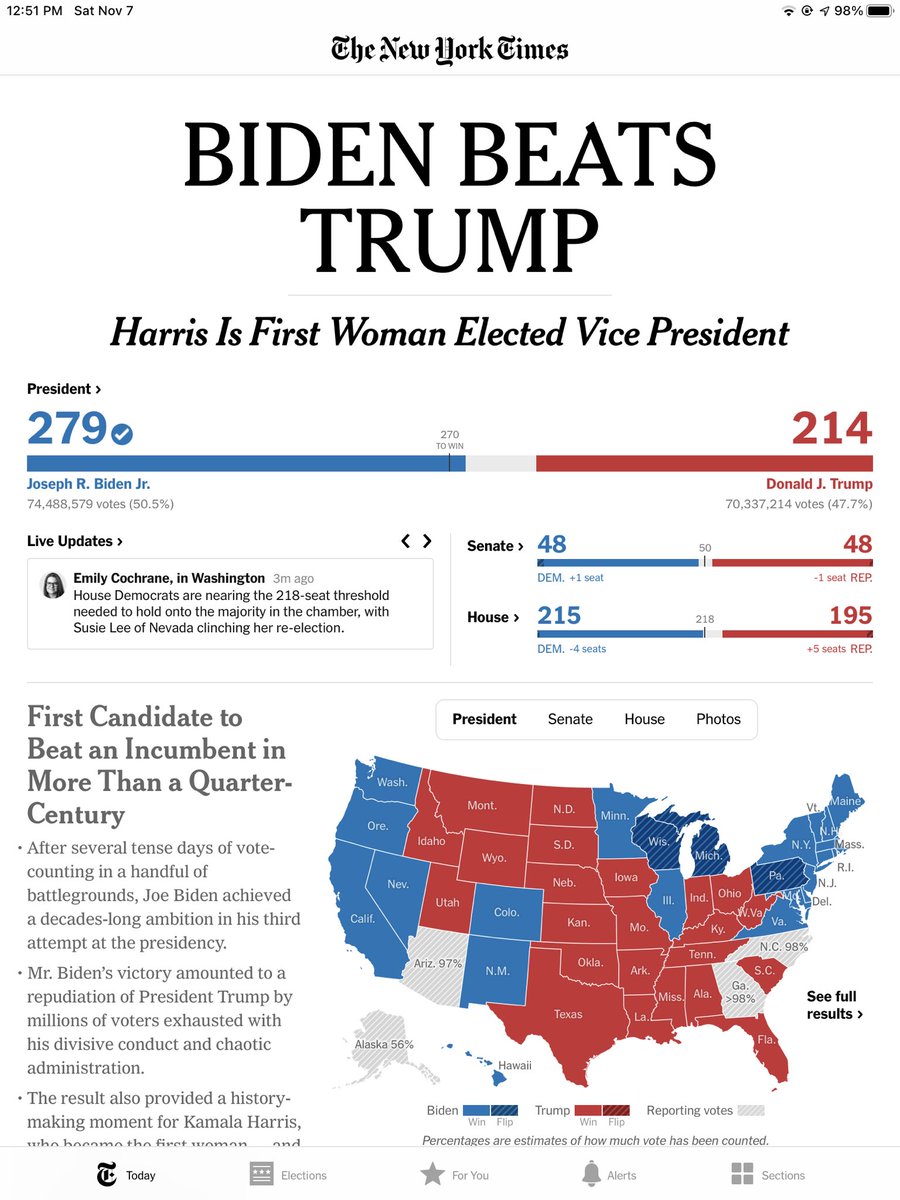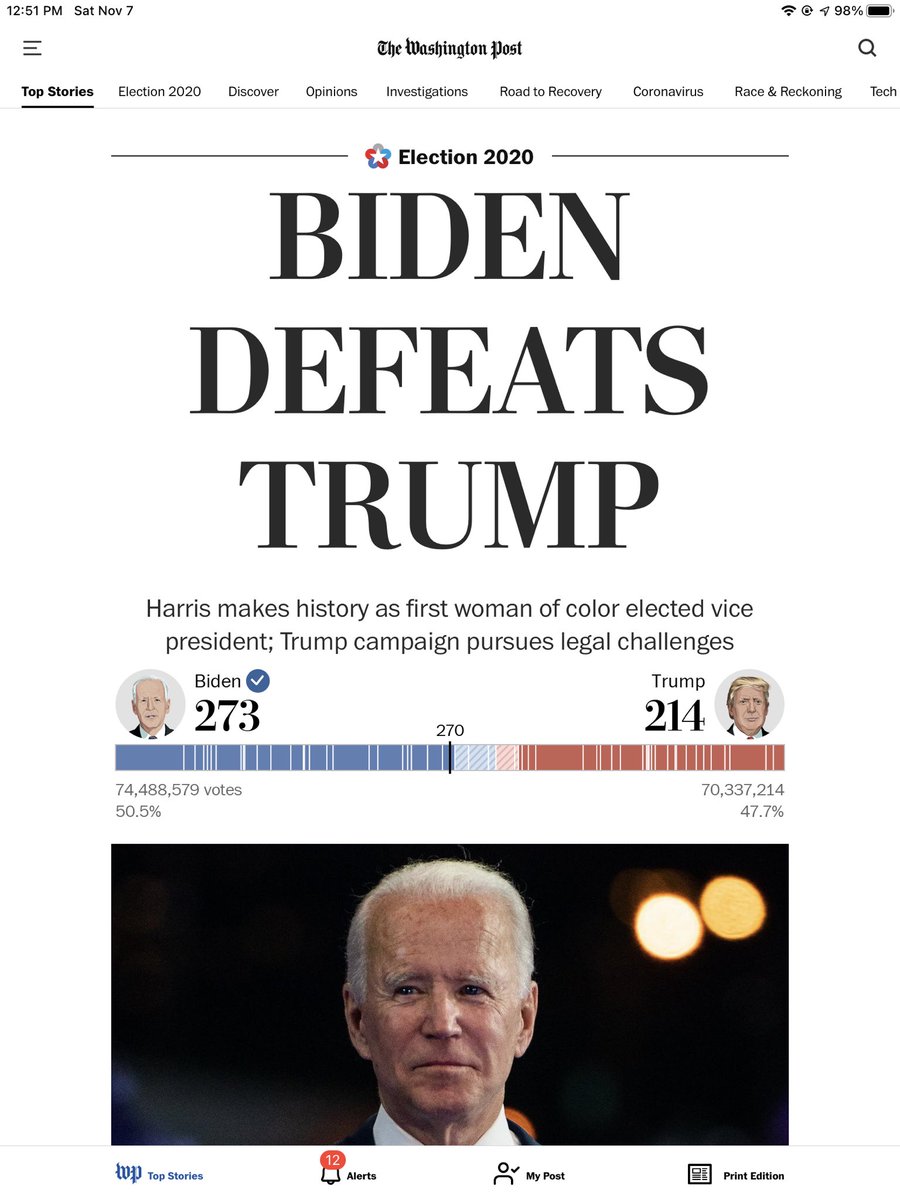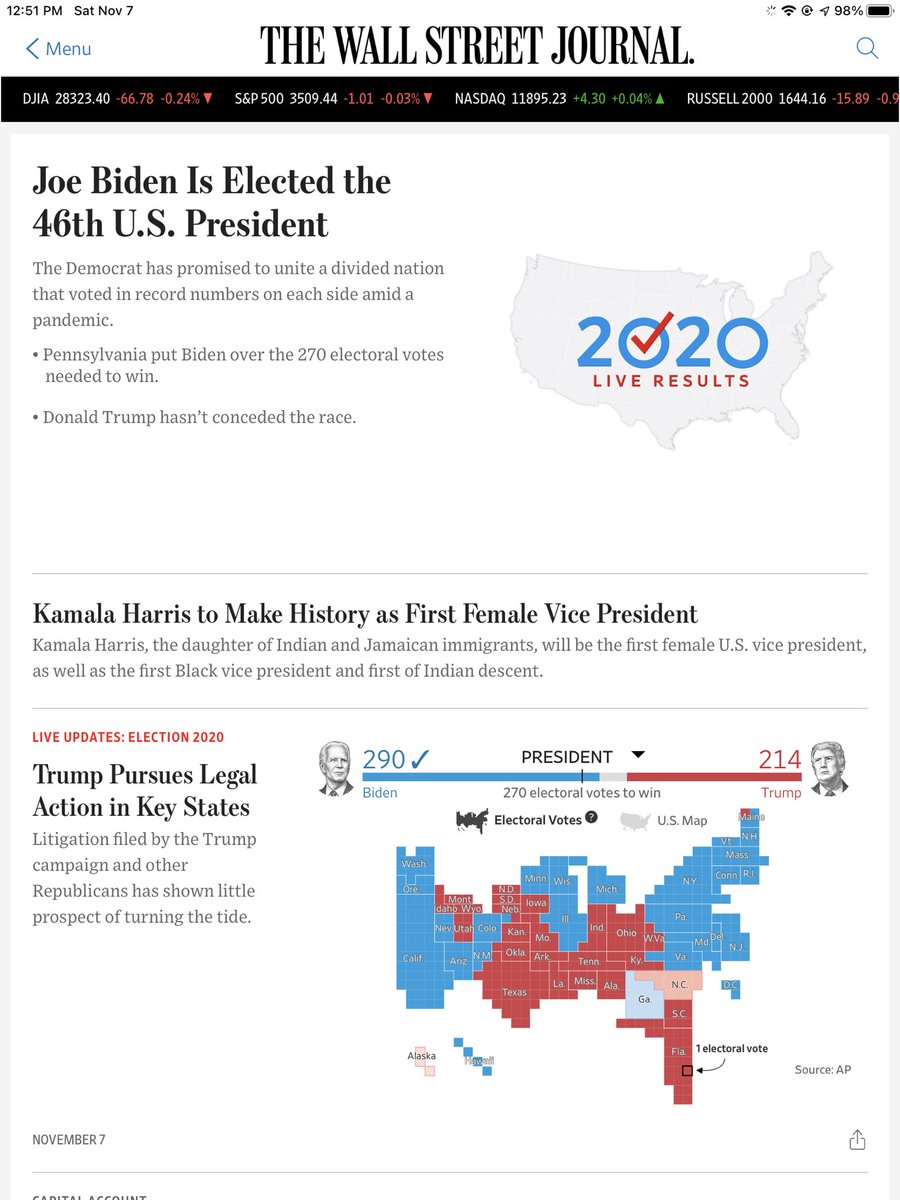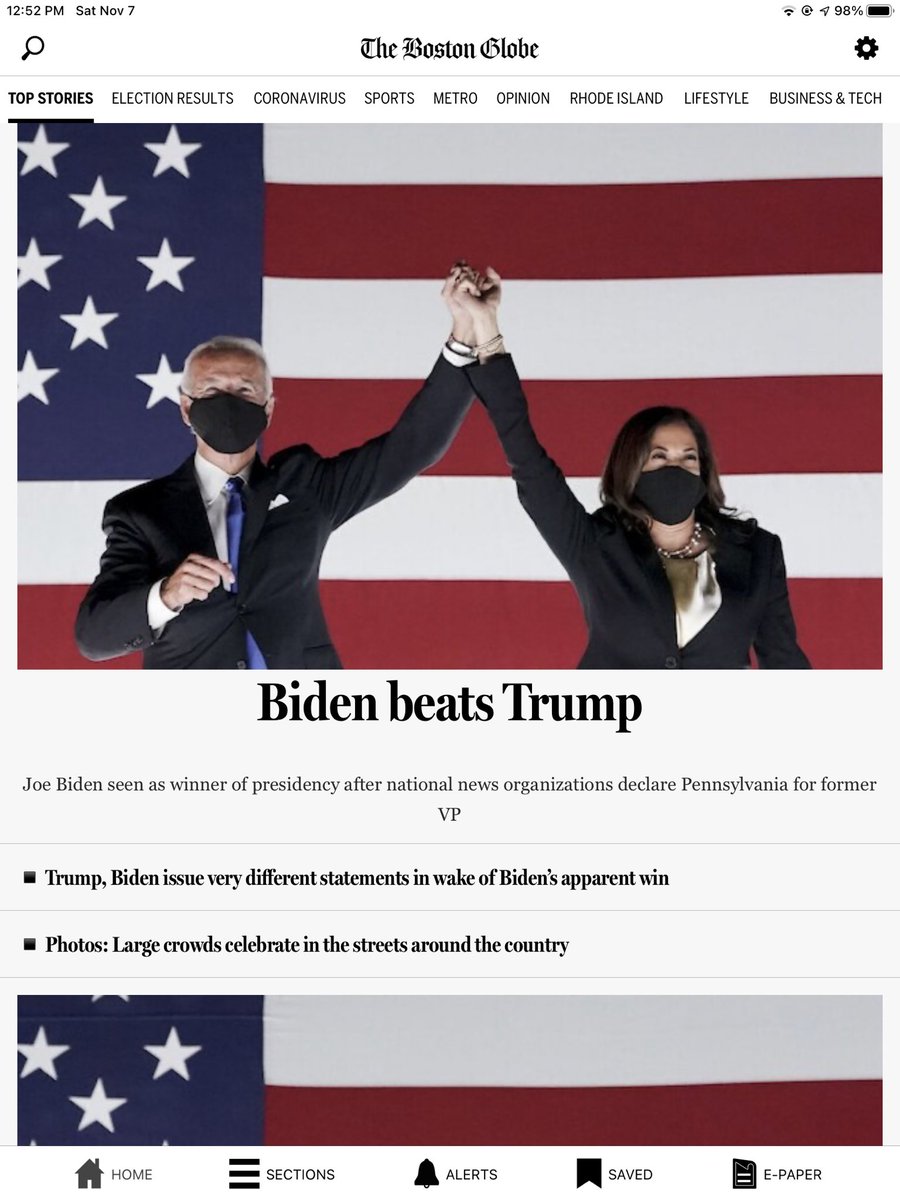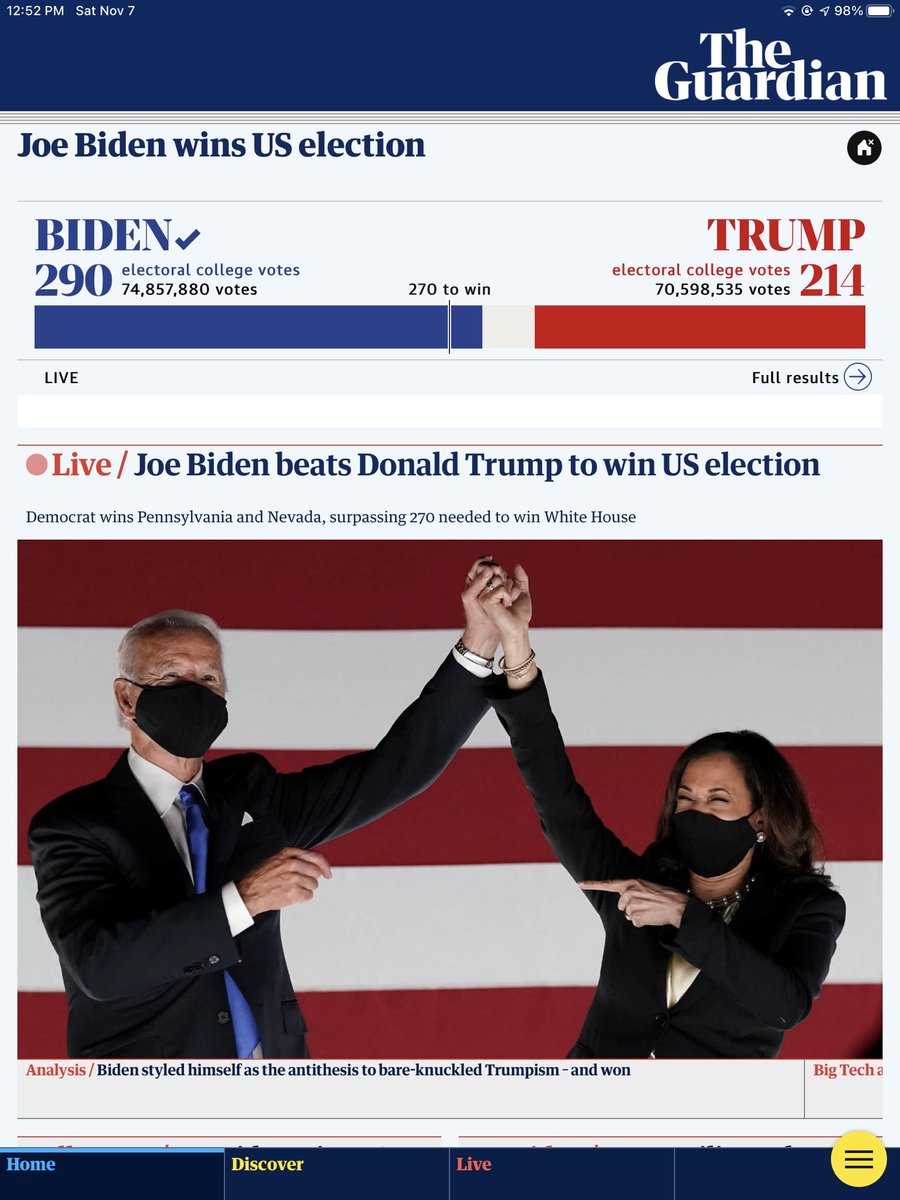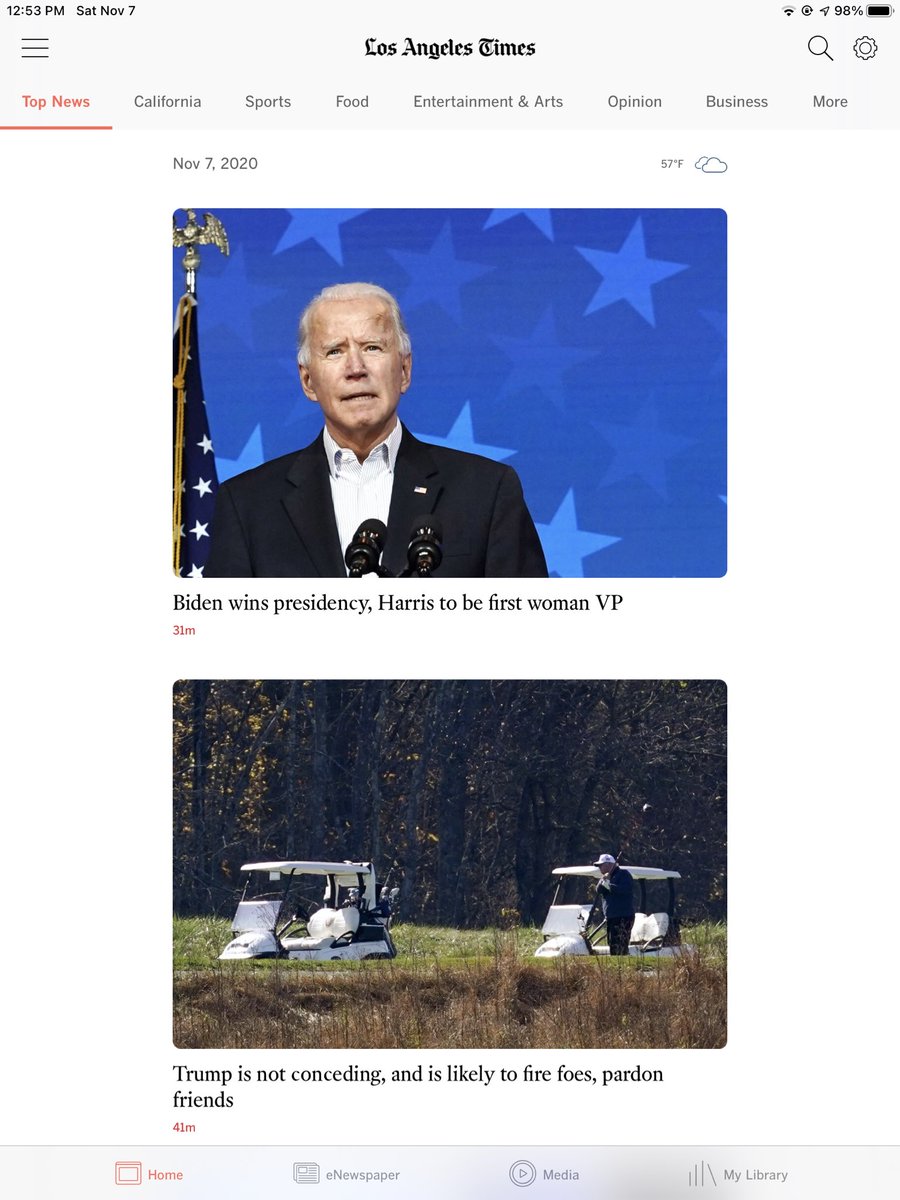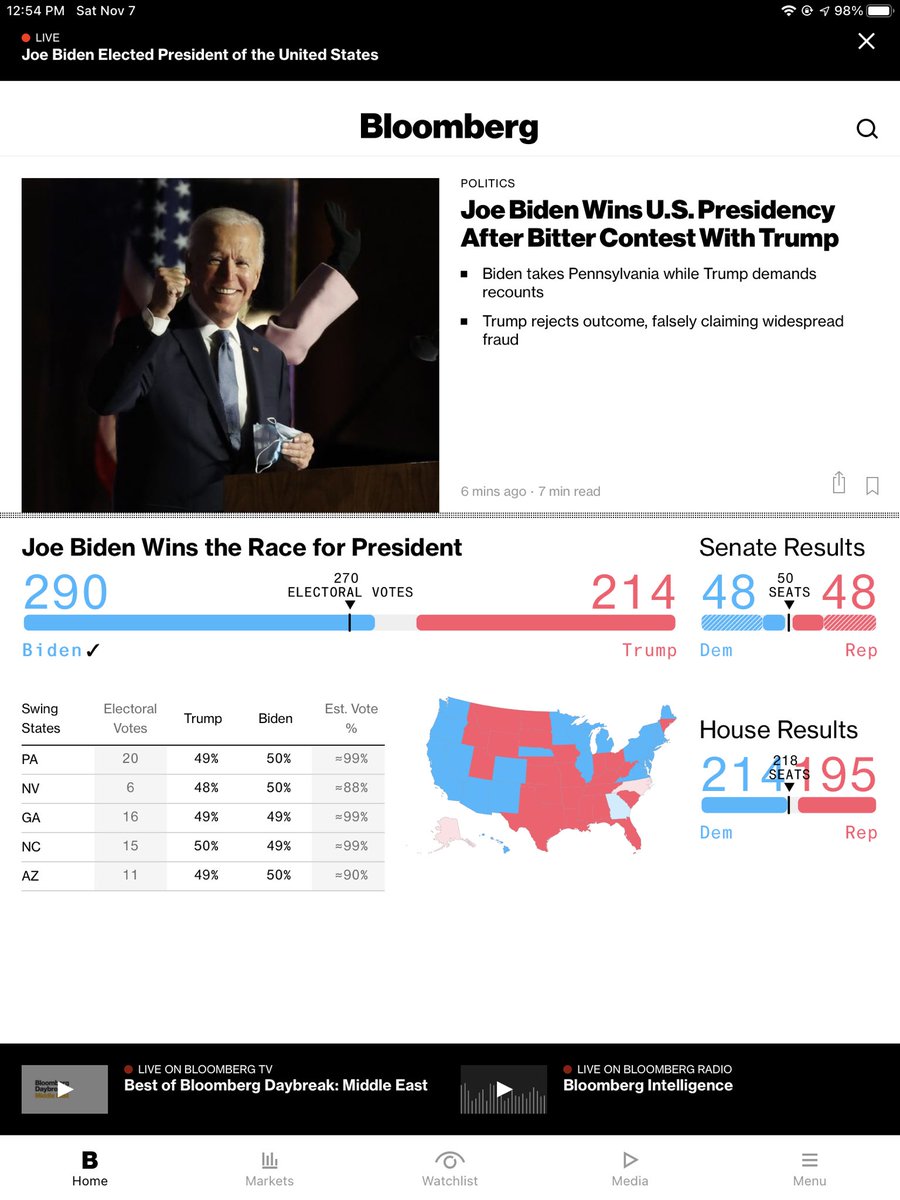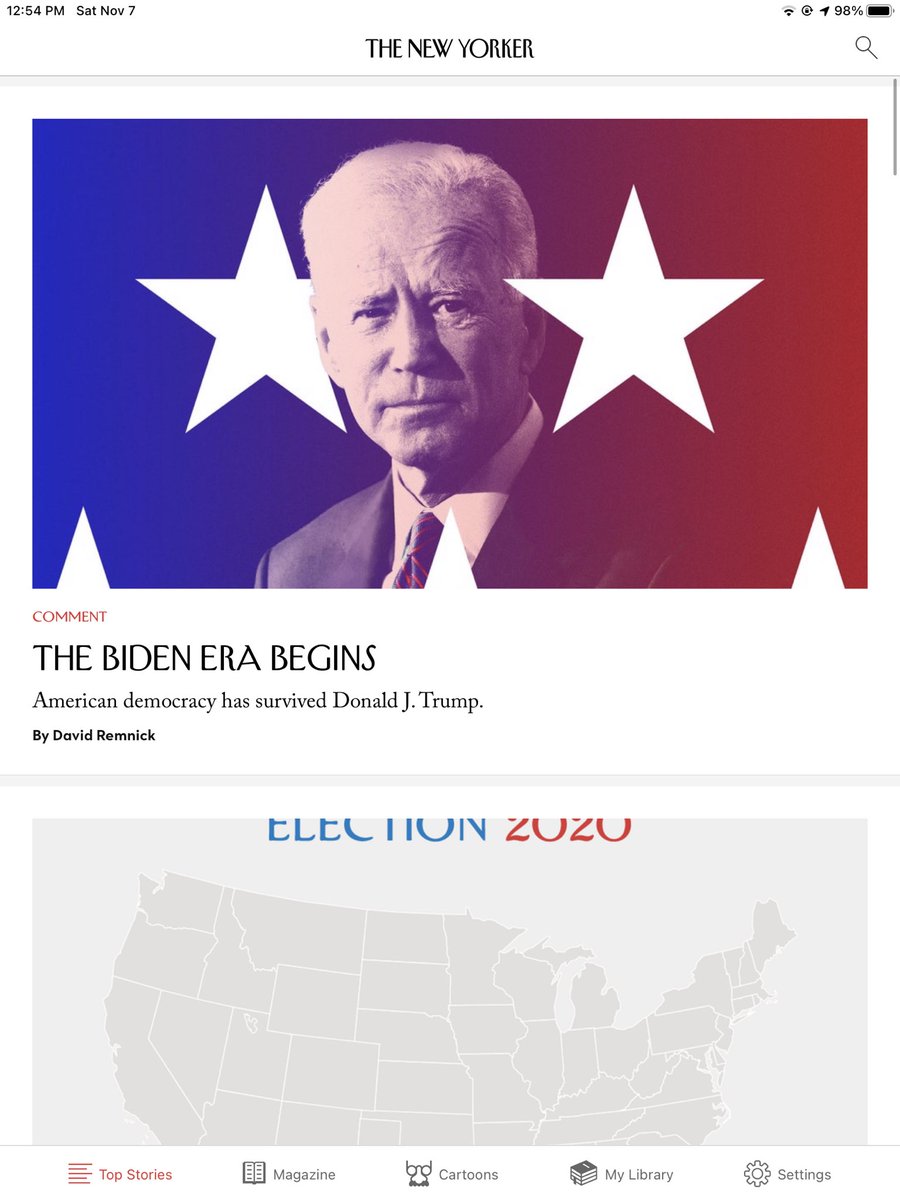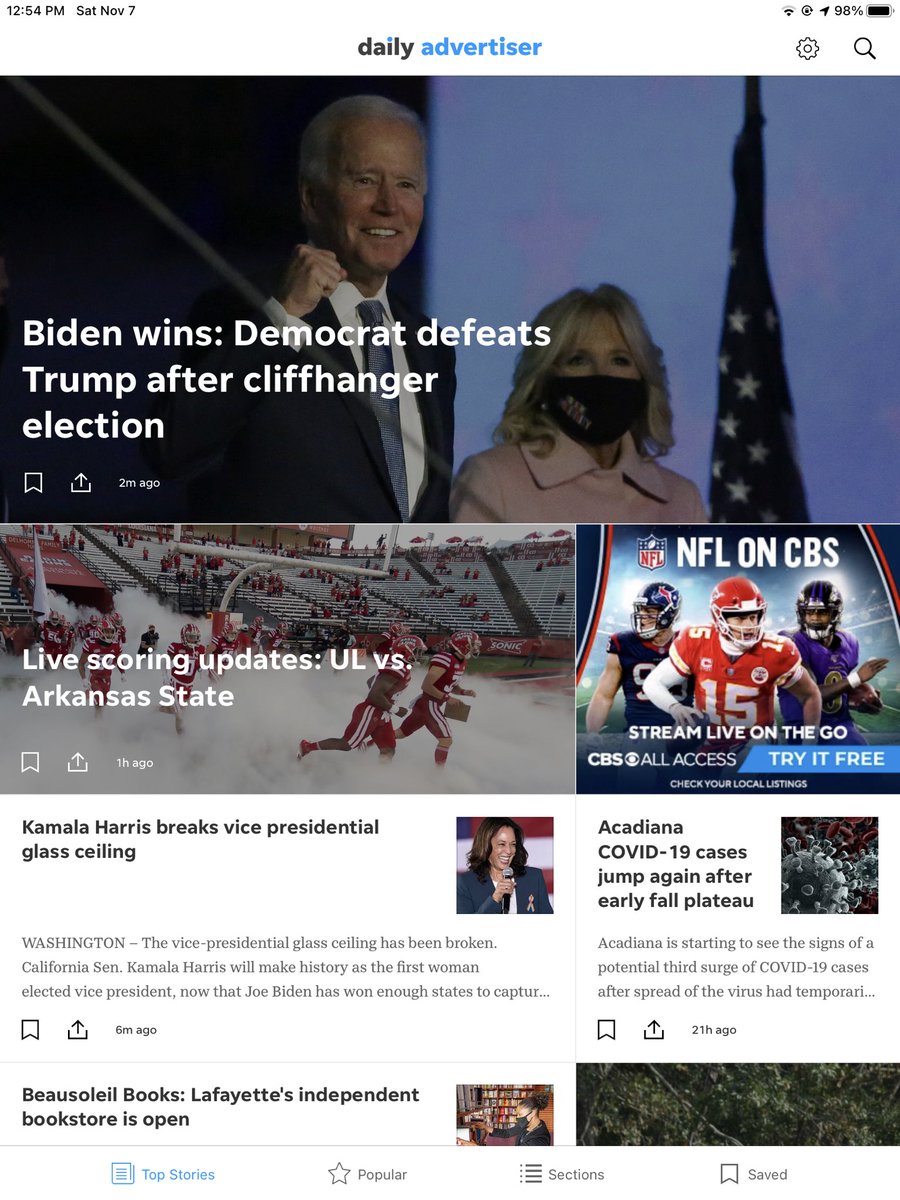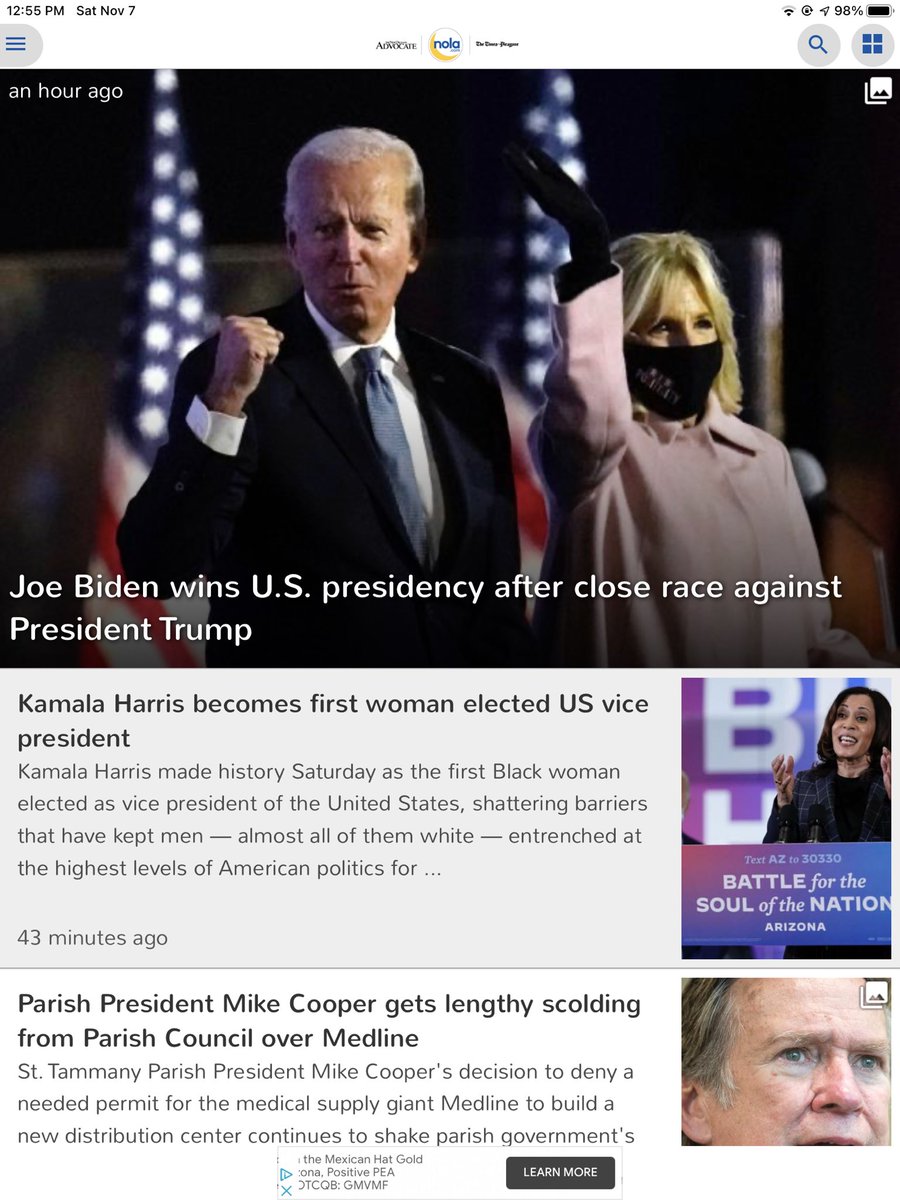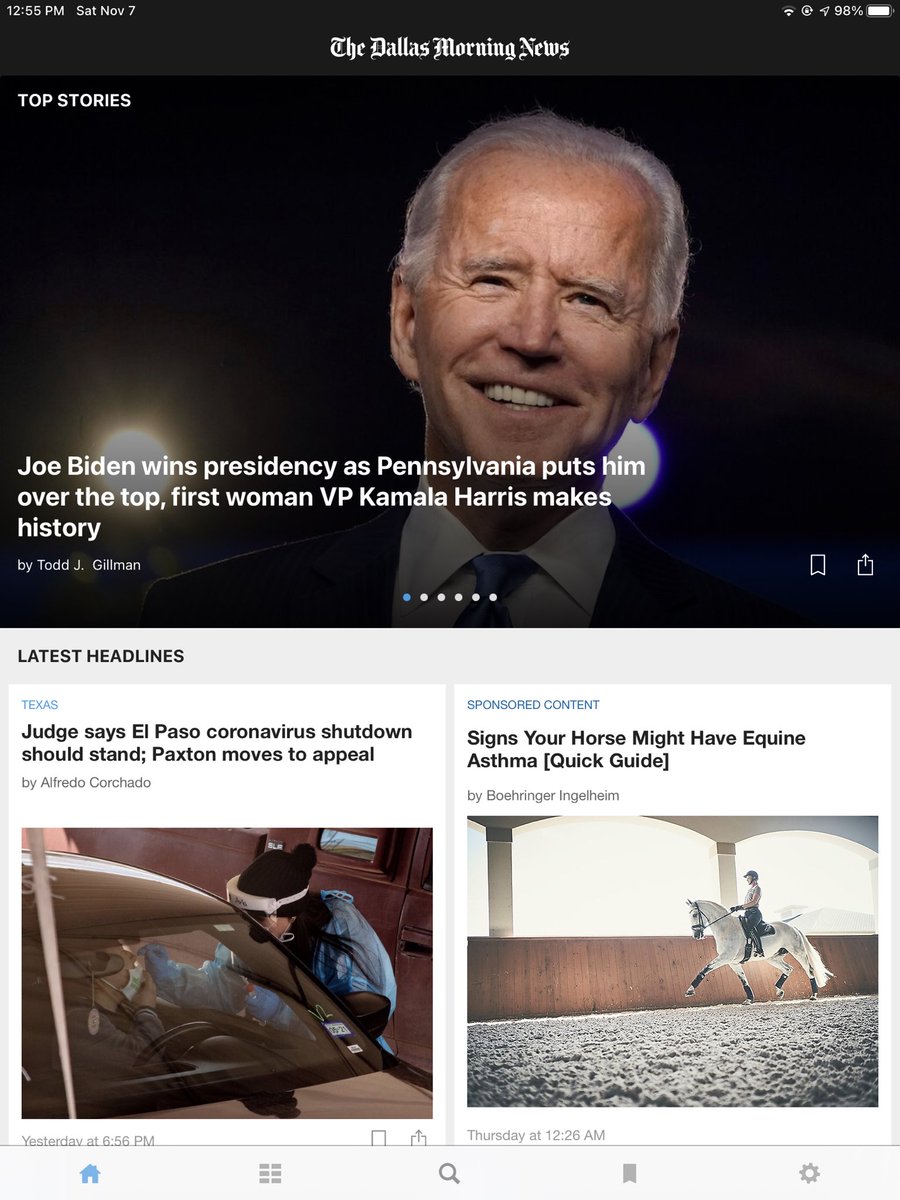
How did Louisiana schools teach Reconstruction in the 1990s?
The state's U.S. history curriculum standards, updated in 1989, asked teachers to have their students role-play as Klansmen and plantation owners.
The state's U.S. history curriculum standards, updated in 1989, asked teachers to have their students role-play as Klansmen and plantation owners.
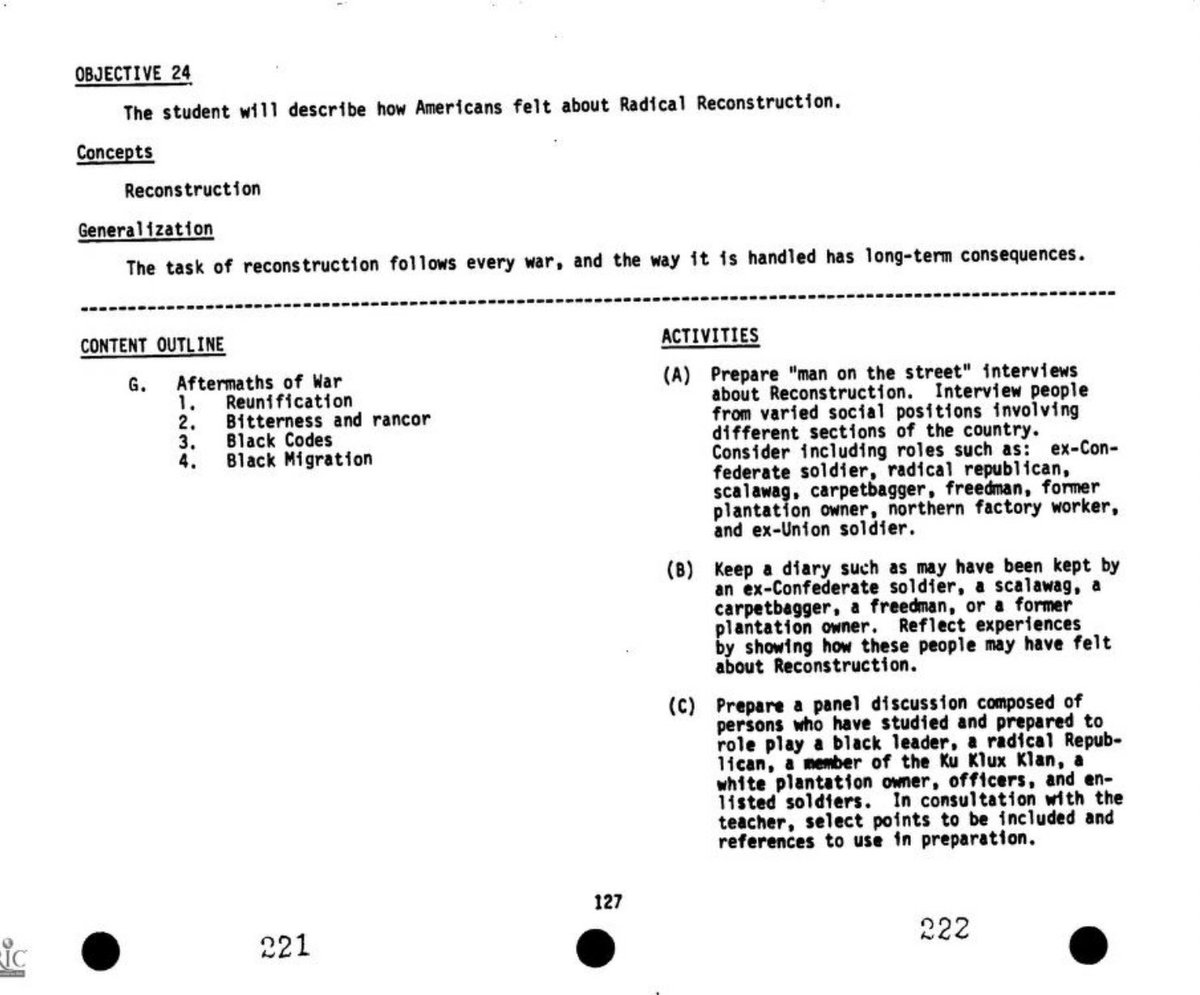
What were the main issues that caused the Civil War?
1. Tariffs
2. Internal improvements
3. Banks
4. Public domain lands
(whisper)
5. SLAVERY
6. Popular sovereignty
7. States' rights
8. Nationalism
1. Tariffs
2. Internal improvements
3. Banks
4. Public domain lands
(whisper)
5. SLAVERY
6. Popular sovereignty
7. States' rights
8. Nationalism
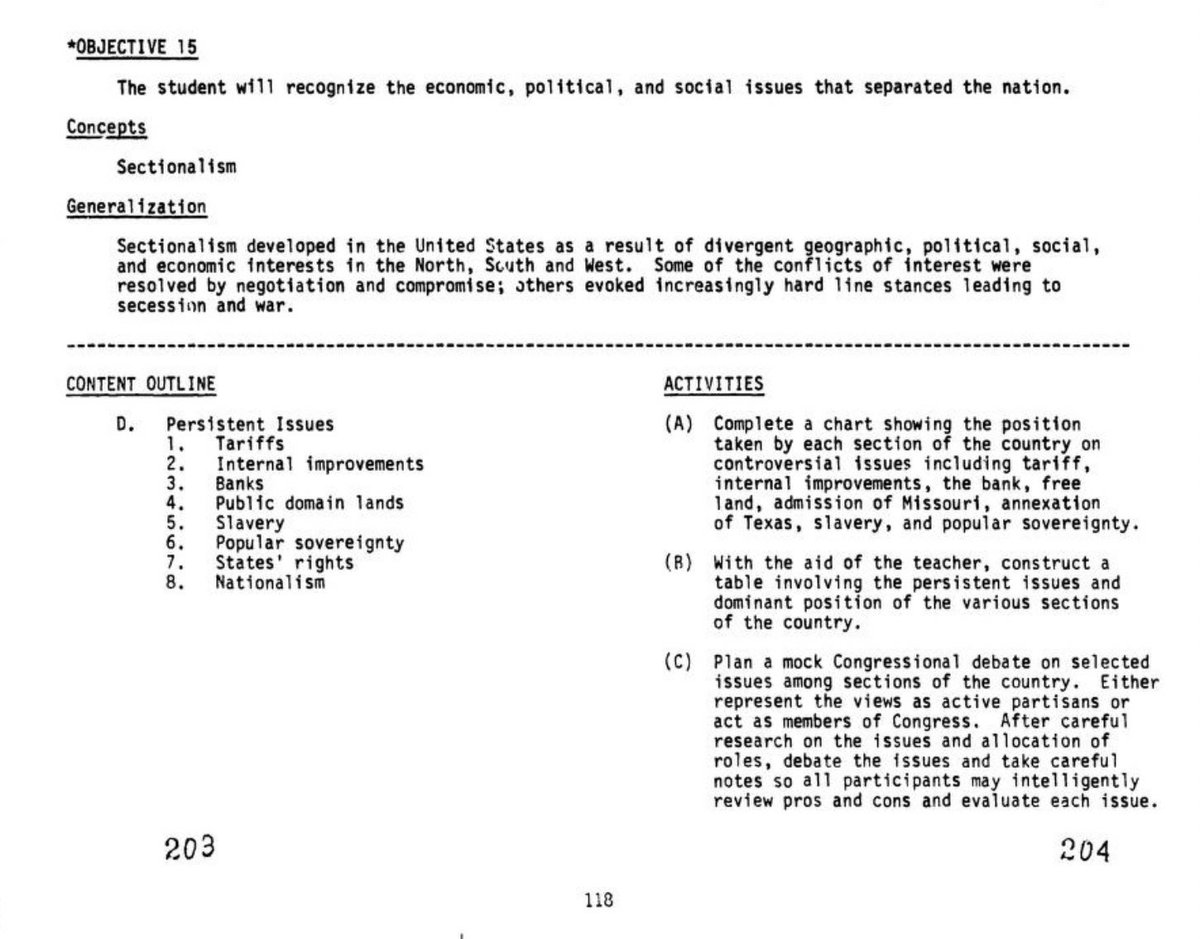
GODDAMN IT TARIFFS WHY'D YOU HAVE TO BE SO DIVISIVE
After that, ZERO about the crushing of multiracial democracy in the South. No mention of black people for the next 18 objectives.
Gotta learn about the Grange!
Gotta learn about the Grange!
When you finally get to the civil rights movement, the emphasis is all on courts and Congress, not the movement itself (or, really, what made it necessary!).
The activities? Mostly about black athletes. Like "Karem" Abdul "Jabar" and "Sachel" "Page" and "Authur" Ashe.
The activities? Mostly about black athletes. Like "Karem" Abdul "Jabar" and "Sachel" "Page" and "Authur" Ashe.
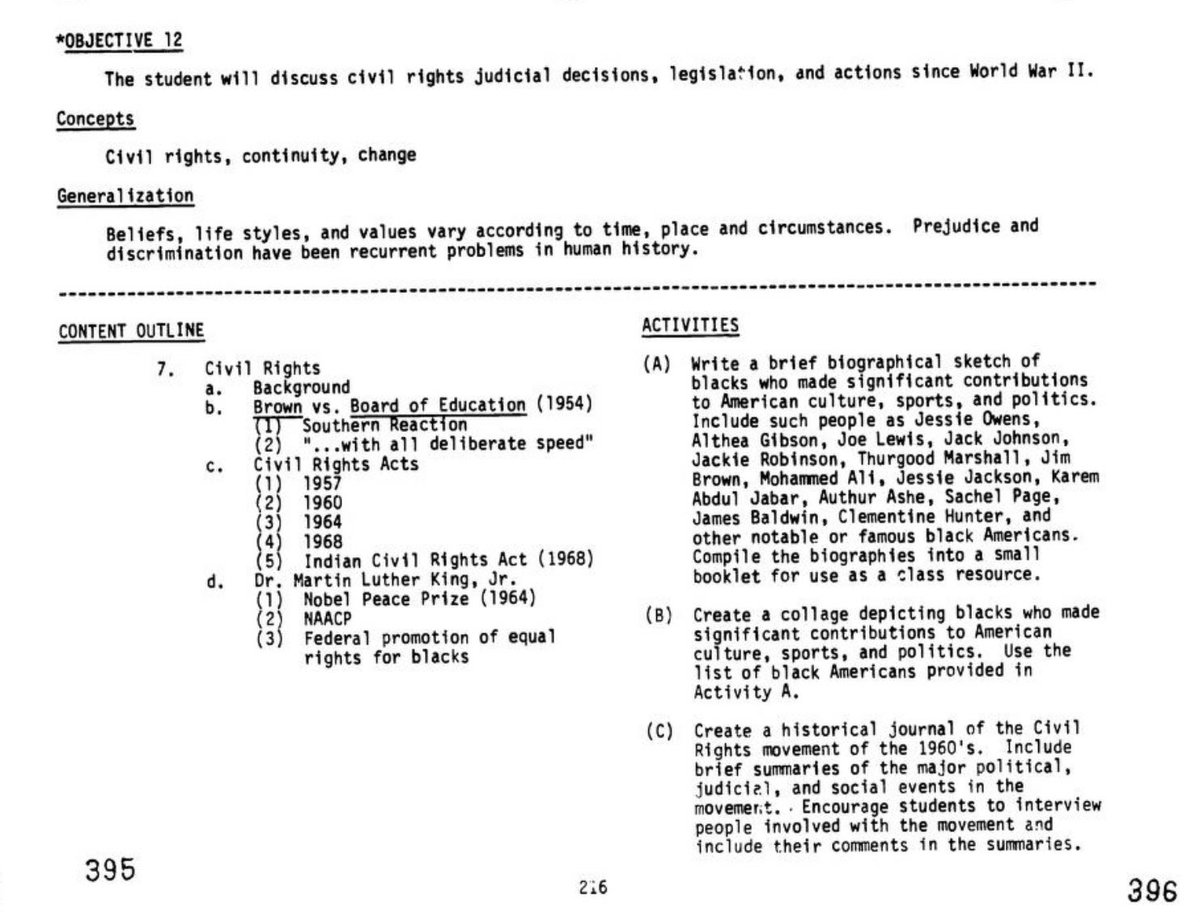
A unit all about 70s/80s politics (in which affirmative action is part of the "New Feminism"?).
Then they remembered women exist so they randomly crammed in an activity about them.
Then they remembered women exist so they randomly crammed in an activity about them.
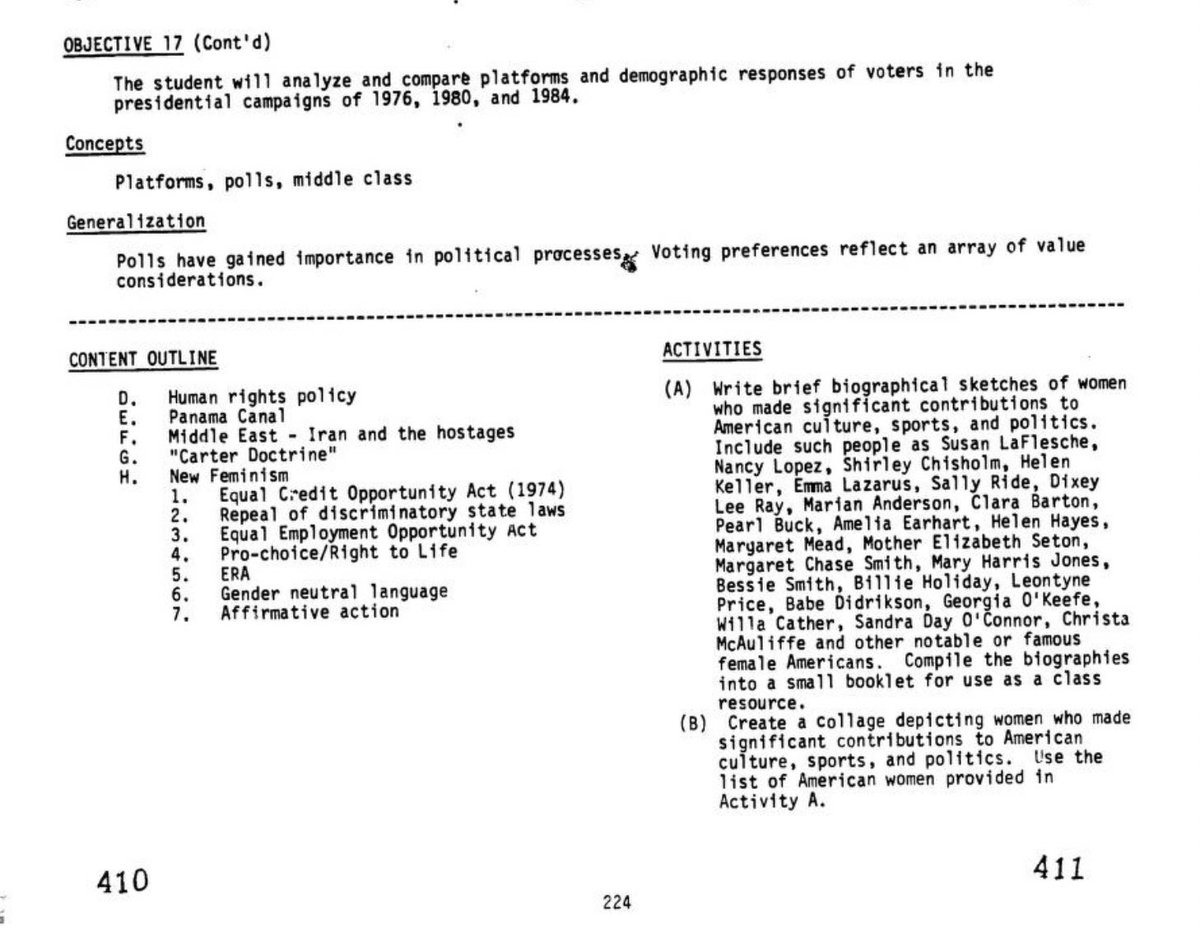
One of the most common takeaways from bad U.S. history classes is that white people *very nicely* set aside their tariff disputes to free black people in the 1860s — but then for some reason white people had to free them *again* in the 1960s?!?!?
Curricula like this is why.
Curricula like this is why.
• • •
Missing some Tweet in this thread? You can try to
force a refresh
